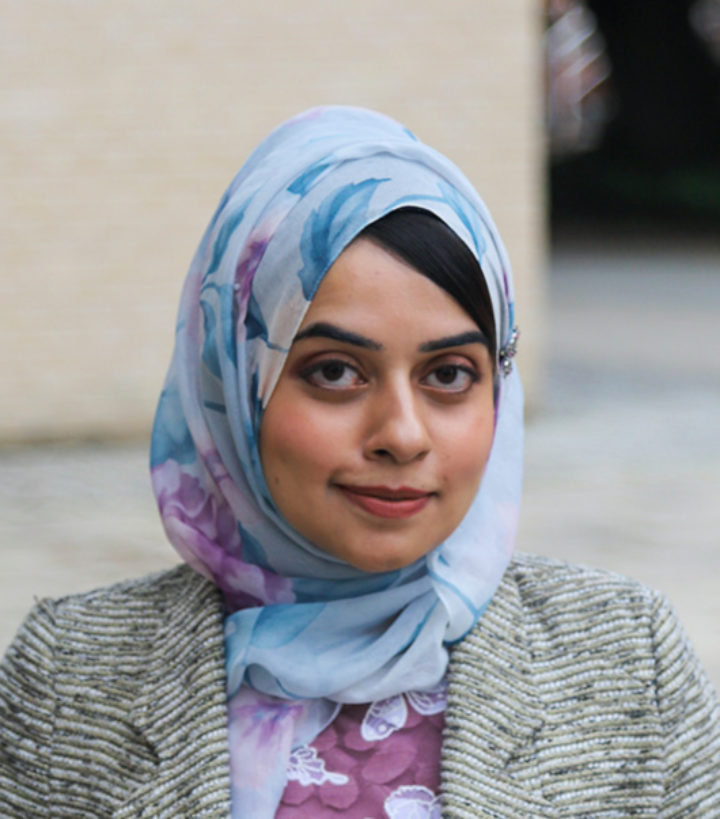A climate scientist’s hopes for COP28
As the UN climate summit COP28 gets underway in UAE, Cambridge University climate scientist Rihab Khalid, attending for the first time, shares her hopes for a fair deal.
By Dr Rihab Khalid
Share
Last updated:

We have the tools
The Intergovernmental Panel on Climate Change’s latest report makes two things clear: one; the world is running out of time to keep warming to 1.5°C and two; we have the tools now to achieve it. It is possible to halve emissions by 2030 and get on track for net zero by 2050. But this requires a transformation in how we live. I hope this year’s COP will set out how this transformation will be fair and inclusive.
A democratic energy system
The transition to clean energy will be a core focus for COP28. The COP28 presidency issued a report with two key goals for energy. First, to triple renewable energy production to over 11,000 gigawatts by 2030. Second, to double energy efficiency from 2022 levels by 2030.
The discussion in Dubai is likely to address how to rapidly scale up renewables and the role of technologies such as hydrogen fuel and carbon capture. But there can be no one-size-fits-all approach to the global energy transition. For it to be fair, it must be backed up by finance and the transfer of technology and skills to support developing economies.
Unlike fossil fuel regimes, the energy transition must avoid only benefitting the minority. Renewables such as wind and solar have the potential to be more democratic, guaranteeing universal access, addressing energy poverty and fostering community participation.
Justice for women and girls
The climate crisis disproportionately effects women and girls. The majority of the world’s poor are women and they are more likely to depend on natural resources for their livelihoods. Four fifths of the people displaced by climate change are women. And yet representation in the discussion at COPs is overwhelmingly male.
Talk of gender inequality is gaining momentum at climate summits. The COP20 Lima Work Programme on Gender called for equal gender participation in climate governance. It laid the groundwork for future initiatives, including the Gender Action Plan at COP23. This demanded gender integration in all aspects of climate action. But female representation in party delegations remains low.
COP28 marks a pivotal moment to amplify gender. Several meetings are planned to spotlight gender in a just transition. Women must be empowered to enhance their climate resilience and play a key role in solutions. A just transition is not only about environmental sustainability, it should also involve social and economic inclusivity.
The loss and damage fund in action
Developed nations account for 79% of historical emissions, while poor countries suffer devastation from climate change estimated to cost $290-580 billion by 2030. And the activities of the world’s wealthiest 1% could cause 1.3million heat-related deaths in the global south in the coming decades.
Inequality is built into the climate crisis, but solutions have the potential to be fair. A landmark loss and damage fund was agreed upon last year at COP27. It is intended to support developing nations to rebuild following environmental disasters and also transition to net zero. But negotiations on the loss and damage fund in the build-up to COP28 have been fraught with disputes. And developed countries have fallen short of their climate finance pledge of $100bn per year by 2020.
Climate change knows no borders, destruction wreaked in the global south will impact the north, threatening food security. Half of Britain’s food is imported and half of this is derived from climate change hotspots. The loss and damage fund offers wealthy nations the opportunity to support those countries on the frontlines of climate change, alongside enhancing their security.
COP28’s success hinges on making the loss and damage fund operational in a way that is fair and inclusive. This will breed trust between developed and developing nations.
A moment of reckoning
The first Global Stocktake at COP28 will serve as a moment of reckoning by showing progress made towards climate targets. I hope the stocktake, along with any further negotiations on the path to net zero, will be fair, inclusive and leave no one behind. This is the true spirit of a just transition.
Share